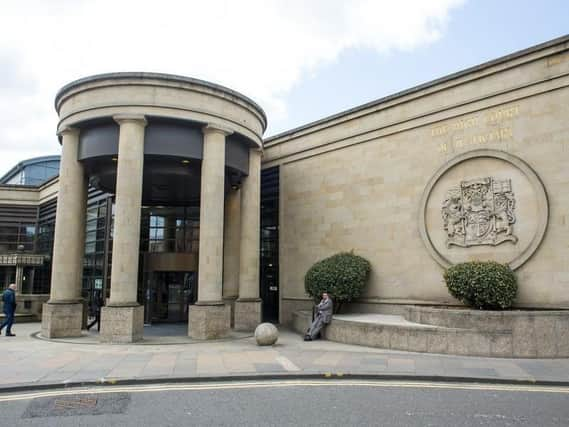Chris Marshall: Legal aid crisis poses risk to justice


More than £5 million was earned in legal assistance fees by 20 advocates in 2016/17 – an increase of 20 per cent on the previous year.
The top earner, Mhairi Richards QC, received more than £500,000 in fees for her work during a long-running fraud trial, helping relegate the previous year’s highest earner, Donald Findlay, into third place on £362,000. Gordon Jackson QC was just ahead of him on £364,000.
Advertisement
Hide AdAdvertisement
Hide AdBut outside of this well-remunerated elite, Scotland’s legal aid system is in crisis.
In the past five years, the total legal aid bill has fallen by 14 per cent to £135.7m, raising legitimate questions about access to justice.
While a small number of public defenders continue to be well paid for the important work they do, there are others who struggle with pay rates which haven’t changed much in 25 years.
But perhaps an even bigger problem is the growing disparity in what can be earned from taxpayer-funded legal assistance when this is compared to those working in the private sector.
As the Glasgow Bar Association has warned, depressed salary levels and unrewarded time requirements have left legal aid law firms with an ageing workforce as they struggle to attract new recruits.
An important pillar of the justice system, legal aid allows members of the public to pursue or defend actions when they would otherwise be unable to do so.
In criminal cases, that can mean assistance by way of representation, or to put it simply – having a solicitor defend you in court.
So difficult has it become to attract lawyers to legal aid work that there are now large swathes of the country without out-of-hours coverage.
Advertisement
Hide AdAdvertisement
Hide AdThat has led to a situation where duty solicitors have been known to travel huge distance – undertaking journeys such as Edinburgh to Elgin – to represent those being held by the police.
And while a new rate of pay is being considered, solicitors can currently expect to earn similar sums to those introduced in 1992.
According to one lawyer, that can mean being paid £40 for a 40-minute interview with a client.
Research carried out by the Law Society of Scotland indicates some firms are now offering services such as child law as a loss leader.
In criminal law, there have been cases where lawyers have felt they have no other option but to work pro bono after seeing their client denied legal aid.
Under changes to the law due to be introduced next month, those regarded as vulnerable will no longer be able to waive their right to have a lawyer present during a police interview, putting more pressure on legal aid.
Earlier this year, the Scottish Government announced an independent review of legal aid, with that work currently ongoing.
The present legal aid system dates from before the creation of the Scottish Parliament.
Advertisement
Hide AdAdvertisement
Hide AdSince devolution, Scotland’s laws and legal system have undergone substantial reform, yet legal aid has not been through a similar process.
There is now a growing acceptance that things will have to change, and that this creaking system is no longer sustainable.
Whether that is met with a willingness to act on the part of the Scottish Government remains to be seen.